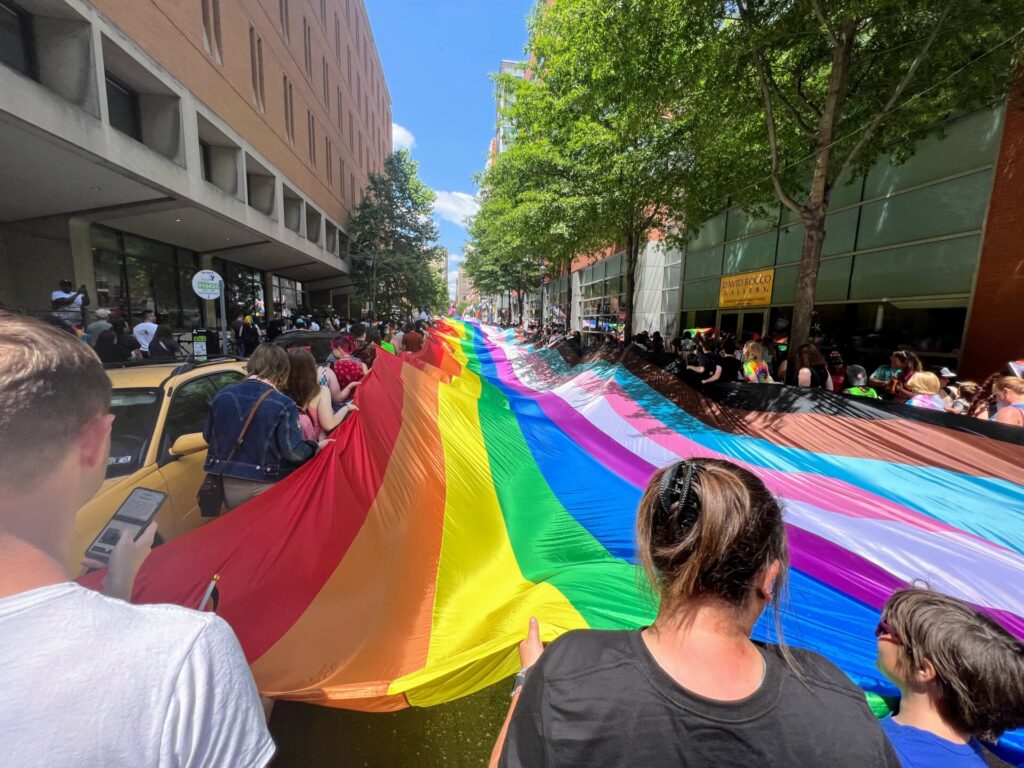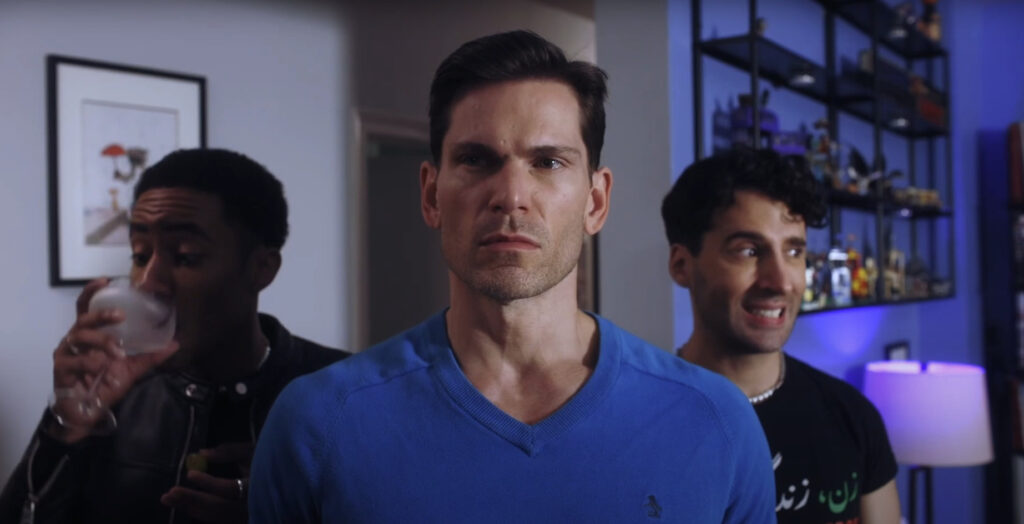Colman Domingo could have been like one of the characters he played in “Passing Strange,” Mr. Franklin – a gentleman who keeps part of himself in shadow in order to spare himself pain and conform to the world’s expectations.
Instead, spurred on by a love-filled upbringing in West Philadelphia, he has chosen to live fully as himself, exploring – and expressing – all the multifaceted reality of his own identity, not to mention those who shaped him and the people he encounters in the world. He tackles all of those all by himself in his solo play “A Boy and His Soul.” Now Domingo, who has won critical acclaim for his ability to portray a wide variety of fully-fleshed-out characters, is bringing his autobiographical play to the city that shaped him.
The Brothers’ Network Inc., a Philadelphia-based nonprofit racial justice organization of diverse African-American men, will serve as executive producer for Domingo’s homecoming. “We are thrilled to bring this powerful black male voice to the stage,” said Gregory Walker, managing director of The Brothers’ Network.”This amazing work demonstrates our lives at the intersections of race, gender, class and sexuality.”
Domingo wrote “A Boy and His Soul” as part of his chosen mission to enlighten audiences about the complexity of African-American existence. “I can add voices from our community that are not per se audible,” he said of the characters he created and portrays in his plays. “We as African-American men are so narrowly portrayed on stage and TV, and it’s important for myself and other African-American artists to tell these stories.
“I choose to tell the stories that I tell because I find that every time I see African-American male characters, they’re distilled and absorbed into stereotypes – they’re oversexualized, or they’re gangsters, or they’ve become caricatures of Cosby, the New Negro.”
Through both the characters he has portrayed in works such as “Passing Strange” and “The Scottsboro Boys” and the ones he introduces and portrays in “A Boy and His Soul,” Domingo seeks to shatter those boundaries that have confined the presentation of the African-American self – male especially, but female as well. “My sister Avery,” one of the 11 different people he portrays in his play, ” is a compilation of many different women – West Philly ghetto princesses with a lot of attitude, a lot of heart, and a lot of sass,” he said. “I wanted to give her character a place on stage so they wouldn’t be marginalized, to see what makes them tick.”
One by one, or in groups, Domingo brings the diversity of characters in his own upbringing to life in the show. “There’s my blue-collar stepfather, Clarence. There’s my mother, who for many years was a homemaker. I play myself from a 6-year-old to now, an African-American gay man.”
The thread that ties together all these characters is love. “I thought it was important to portray a family like the one I grew up in that was surrounded by so much love. I think that is surprising in the portrayal of an inner-city black family.”
And underneath it all is soul music, the soundtrack of not only his own life but that of an entire generation of African-Americans. “One of the messages delivered in soul music is faith in life, in how you find your way,” he said. “I don’t know anyone who hates music or who doesn’t have a favorite song, and there’s a reason why.”
Finding one’s identity and changing for the better are subjects that have animated Domingo throughout his career. Those subjects were the meat of “Passsing Strange” and they come to the fore again in Domingo’s own play. He is especially drawn to African-American male characters who he considers overlooked, including African-American gay men. “I realized as I came to write [this play] that just as August Wilson focused on Pittsburgh and Woody Allen focused on Upper West Side Jews, I am intersted in my protagonists being African-American gay males – but fully fleshed out, so we can see a full human being, not someone who is there for comic relief or who is oversexualized,” he said.
And even though he no longer lives here, Philadelphia informs his work and his characters. “Everywhere I have gone, I claim West Philly,” he said. “People say to me, ‘You don’t sound like you are from West Philly,’ but everything I do is West Philly. Growing up in a working-class community taught me a lot about how to survive, and I am proud to represent West Philly.”
He will represent it again in his next project, a play currently in development called “Wild With Happy.” The play, which is partly set in Philadelphia, is a satire on the American way of death – and Disney World. Rodrigo anticipates the show will open next year.
Rodrigo said it had been his desire to bring his show to his hometown from the start. “The full show has a lot to do with lighting and set design, but I wanted to do something simpler, something stripped down,” he said. “It works, and the music has become even more satisfying,” he said. “It is my homecoming. And it is sharing the things that make my home special.”
Colman Rodrigo brings his one-man play “A Boy and His Soul” to the Red Room of the Society Hill Playhouse, 507 S. 8th Street, on Sunday, Oct. 16, at 8 p.m. Tickets are $35; a portion of the proceeds benefit the Human Rights Campaign. Call the Society Hill Playhouse at 215-923-0210 for tickets. For more information, visit www.thebrothersnetwork.org.






